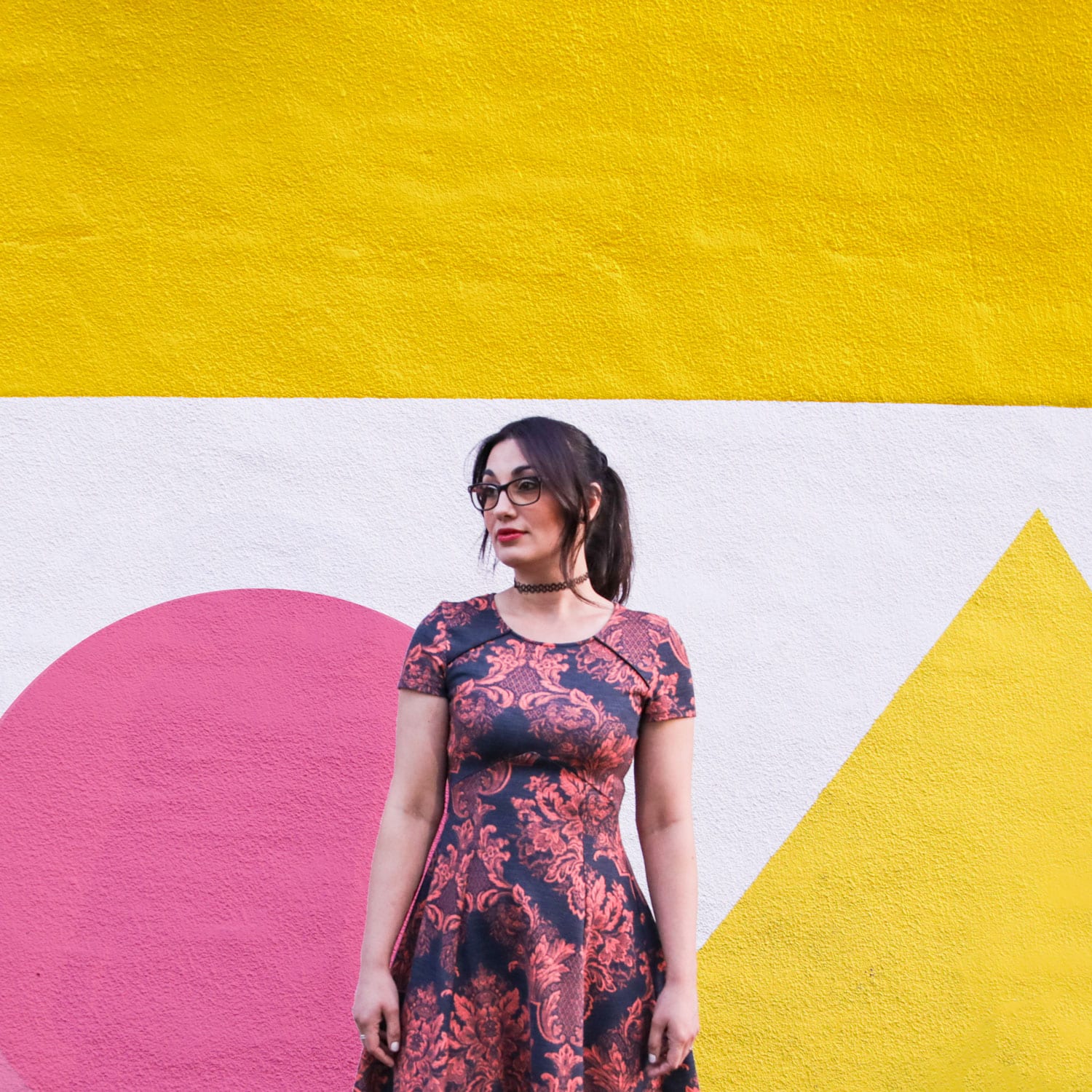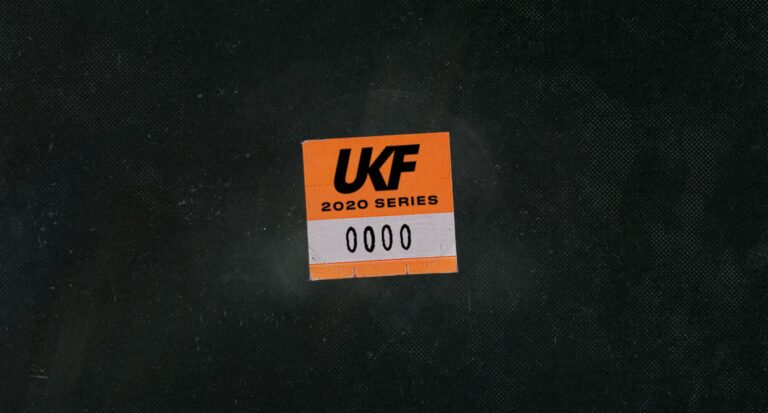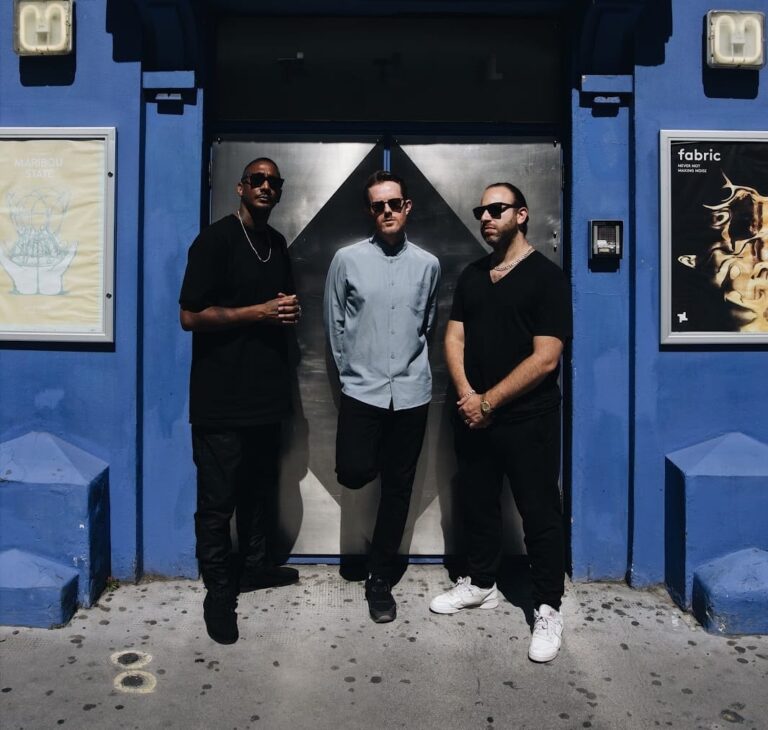Names can be misleading. Rebecca isn’t actually a trumpet. But to many D&B ears she is brand new.
Emerging first on the late great Billy Denial’s Siren Audio in 2018, BrandNewTrumpets introduced herself to the world properly this time last year with her debut EP Ode To Olé. It came courtesy of Diffrent Music, the label who have given us debut records from the likes of Lakeway, Arkaik, Fearful and Frederic Robinson over the years.
Ode To Olé was a vast canvas that flexed from contemplative, deep 120 vibes to all-out uncompromised jungle. It was the sound of the South Londoner setting up her stall as a producer who isn’t going to stay in one lane and devours influence and inspiration from everything; jazz, Afrobeat, ancient Chinese empresses, the white-washing of her own Mauritian heritage and the true heroes of 2020: the workers.
A dedication to the people who kept our countries running and provided us with everything we needed to stay safe, stay healthy and fed, The Workers EP is BrandNewTrumpets’ second EP on Diffrent… And it’s every bit as uncompromised and widescreen as her debut. Telling stories of her own roots and of revolution, over a range of wily, deliciously unpredictable breaks and cinematic halftime, once again Rebecca digs deep, taking influence from Fela Kuti to Stormzy along the way.
Out last week, The Workers is another exciting exploration into her brand new world… A world that provides respite from an intense day job that’s lightyears away from the studio. Far cry from being a trumpet, Rebecca helps to save lives. Get to listen, get to know…
I’m going to do the biggest cliché in the world for a music journalist and ask you about your name. There’s got to be a cool story behind BrandNewTrumpets!
That’s what everyone says, but there isn’t one I’m afraid! It was just something that came to my mind and I really liked it. It’s a bit silly but why not? For me, it does mean something. My software is my brand new trumpet. Albeit synthetic.
Modern day jazz instruments really aren’t they. I think there’s quite a strong jazz influence for you, isn’t there?
A little, yeah. I’ve always loved jazz. I probably got into it at the same time that I got into D&B. If you listen to some of that older jungle, you hear jazz influences. So to me it wasn’t a big distance between the two sounds. Just listen to DJ Krust or Peshay and you can hear those jazz influences.
It’s about the freedom and not being governed by a format, I guess isn’t it?
I have actually been thinking a little bit more about structure because I’ve just recently started DJing. So I have started thinking about arrangement and how I might play something I’ve made in a DJ set. But typically I don’t tend to think like that. I tend to be quite free. I certainly want to be free.
Absolutely. I know you’ve got a fascinating but very intense job and have developed something that could help save lives. I’d imagine the freedom you experience in music is complete catharsis from normal life. Can you tell us a bit about what you do?
Yeah sure. I run a medical supplies company and we produce a lot of customised procedure packs for different surgical procedures. Someone got in touch on behalf of a lady called Lynne Baird who set up the Daniel Baird Foundation after her son, Daniel, was tragically stabbed in Birmingham. Rather than the stabbing being fatal, it was the loss of blood, so she really believes that had there been something available in the pub or in the taxi to hospital that could have helped stem the bleed, her son’s life could have been saved.
So, she made it her mission really to start developing what we what we now call a bleed control kit. They essentially include all of the tools that you would need to stem a bleed while the paramedics arrive. A friend of hers approached us knowing we customise kits and asked if we could make them and that’s what we’ve been doing, trying to install them in as many public places as possible. We went very much down the avenue of the defib machines.
I was going to make that comparison and how they’re all dotted around in public places
Yeah. And it’s fantastic, isn’t it? Because they’re quite visual, you see them when you walk through places like stations and you know where they are. So, similarly we want to try and achieve the same with bleed control kits. A big red box that anyone can use in the event of any type of incident and accident. This year one was proven to work. A man was shot in Birmingham, but a woman was passing and ran into the Costcutters where the kit was stationed. She stuffed the wound and he got to hospital and survived. Right now, we’re working with Yemi Aderemi from YourCitySaysNo, who is raising money to provide more kits around Croydon and South London.
Incredible. So you’ve got this intense juxtaposition of roles then; creating medical packs that save lives by day and losing yourself in the music by night…
One hundred percent! For me it’s like closing the doors on everything. So when I go into the studio, I really do genuinely switch off. There’s nothing else you can do in life which gives you that completely free mindset.
Yeah. Those golden moments when you’re so deep in the creative process you lose hours!
Honestly! I wish I could lose more hours than I do. But any time I can spend in the studio is a blessing and I really love that.
I reckon you’ve been deep in that freedom for years before your debut EP came out last year on Diffrent.
Oh totally. I suppose I’ve been trying to produce over the last 10 years. I had a couple of bits out on Siren Audio before my releases on Diffrent. Siren was obviously Billy Denial’s label. Rest in peace Billy. That was awful. But when I started working with Diffrent it was a big game changer. I felt [label owner] Dexta understood my music and where I was coming from. I sent him a lot of material I had – some finished tracks, some works in progress – and the tracks he selected and joined the dots between were all things that were important to me.
That first EP felt like a mission statement in a way. There was a theme, but it covered a lot of ground, too. It set your parameters out. It was largely inspired by jazz legend John Coltrane, wasn’t it?
Yeah. The track Ode To Olé is literally an ode to his song Olé. It’s not remotely the same but I used the time signature – three over four – and took influence from that incessant ongoing non-stop, just sort of tribal momentum. It’s like 16/17 minutes of just madness and that really drove me. The lyrics are also about his saxophone playing.
Nice. Now this new EP – The Workers – is a little hat tip to Fela Kuti, isn’t it? I can hear that in some of the tracks but not so the title track.
Yeah that’s right. There’s no direct influence musically on that track. But yeah I was listening to a lot of Fela Kuti and a lot of Afrobeat in general and artists like Culoe De Song. I love a lot of South African house music. It has that same incessant relentlessness.
Were you listening to a lot of this during lockdown because it’s vibrant, uplifting, empowering music? Something to balance the bleakness we’ve had?
I think it’s more about the revolutionary aspect. I’m a bit of a revolutionary and there’s a lot of revolution in Fela’s lyrics and themes. But there are all sorts of ties to what’s been happening this year. The Workers title alone. When you think of revolution you think of the people in the world who will revolt. And definitely throughout this whole period of COVID it’s been very apparent who the workers are. And largely, it’s the people that don’t get paid their worth, who are undervalued. They’re the ones that had to work. And I don’t feel like there was a choice either. People talked about the choice of whether you could work from home or not, but for a lot of people that choice was not there. If you were a carer or a shop worker or delivery worker or health worker you had to work.
It highlighted the value of these people and made me want to dedicate what I was creating to them. And there’s a real spirit of revolution in that title track. That spirit of us workers working together. That track was actually inspired by watching Stormzy at Glastonbury on TV. I just thought it was magic. He has those same themes running through what he was doing.
Even down to the bulletproof vest he wore…
Yeah, absolutely. So I was writing that piece of music thinking about him and thinking about the power of the people.
There’s also the story the opening track Our Ancestors’ Dream, which very much fits in with the idea of revolution and oppression and white-washing history…
Absolutely. It’s that African influence again. When it came to just naming the track, I thought it would be really appropriate to name it after a Mauritian sega song Reve Nou Ancetres by the artist Cassiya which is about recognizing our African heritage. Mauritius only gained independence from the UK in 1968. Not that long ago.
It had also been in the hands of the Dutch authority. And after that, the hands of the French. For centuries under colonial rule the African roots, heritage and traditions were white-washed. The song was written about that, calling for people to remember their language, remember their roots, remember their traditions. So that was a huge influence, as was the Mauritian music sega and Afrobeat. I felt it was really relevant and obviously means a lot to me.
Massively. Was a lot of this research or things you already knew about your ancestry?
No, most of this is stuff we’ve come to realise recently. Me and my brothers didn’t really know what heritage to look toward. Are we supposed to be looking to South India? Are we supposed to be looking to Tamil? Are we supposed to be looking to Africa? It wasn’t really that clear cut. So we’ve had to go on that exploration ourselves. I think a lot of Mauritians are living through this exploration at the moment. So yeah, I have had to research and find a lot of papers online. A lot of great academics are working to unpick all of this and finding old cultures and lineages. So I do a lot of research and keep my mind open. I enjoy this side of it anyway. I’ll take inspiration from absolutely everywhere. It doesn’t matter from what or where or who.
That’s the melting pot!
Yeah. And at the same time, they always say that there’s just absolutely nothing new under the sun. We’re just reinterpreting what has come before us.
Everything is a remix.
Exactly. So all my work is a homage to the people that came before me.
There was another significant story on your last EP. The Lost Empress… A Chinese Empress who had written out of history.
Yes, she was Wu Zetian. There is monument of hers with all the inscriptions of her role and the history of her reign but, in more recent years, the engravings have been completely white-washed. Literally they’ve been taken off and wiped out. You see that with women in history, much the same as race in history. You see it being rewritten by the people who are in power at the time. Who have largely been white and male.
It’s amazing how people are able to retrieve and re-discover these things after generations or centuries have passed.
They’re there. Somewhere, because they are usually written, but it’s what your authority chooses the canon of literature to be. They decide what you’re going to study in the curriculum, irrespective of whether there are other texts and other sources out there that tell different stories. So the stories are there. It’s just the fact that we’ve not been directed to them necessarily.
What stories are you directing us to next?
I’ve got a few things in mind. I can’t wait to be able to keep releasing more, full stop. I’ve been doing some work with Bob Macc. He’s been doing some drum work for me, which has been really good fun. We’ve got a couple of projects which aren’t your typical D&B. But I also want to be able to write a couple of tunes that I can throw into a DJ set as well. There’s a certain type of sound I want to play and it’ll be fun trying to write those type of tracks, so we’ll see…
BrandNewTrumpets – The Workers EP is out now on Diffrent Music
Follow BrandNewTrumpets: Facebook / Soundcloud / Instagram


